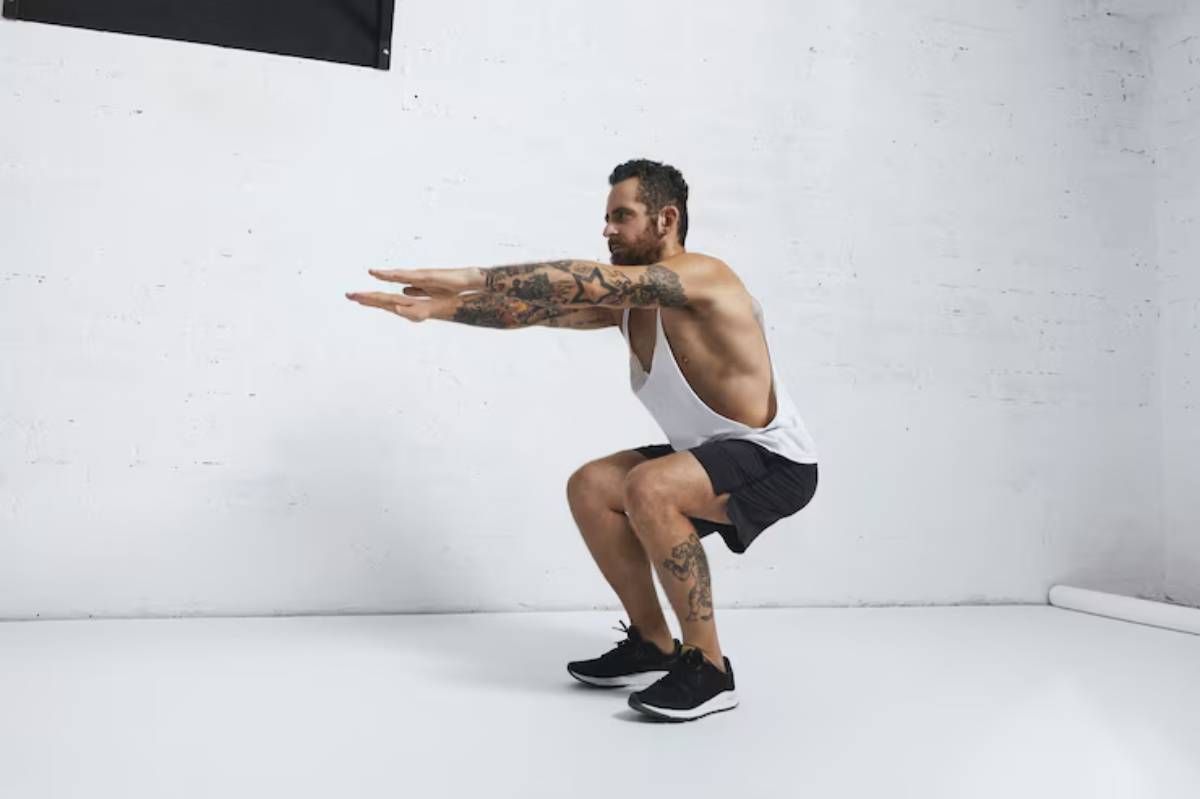
How Sleep Deprivation Impacts Muscle Repair
You’ve dialled in your training routine, eating clean, staying hydrated, and hitting your protein targets. But there’s a lingering issue—muscle soreness that doesn’t ease, performance plateaus, and a nagging fatigue that won’t quit. The missing puzzle piece? Sleep.
While it might not be as trendy as protein shakes or recovery gadgets, sleep is the silent powerhouse of muscle repair. And when you don’t get enough of it, your body pays the price. In fact, even one night of poor sleep can disrupt hormone balance, slow tissue repair, and compromise your gains.
In this blog, we’ll explore the science of how poor sleep impacts recovery, what happens to your muscles when you consistently cut corners on rest, and how to re-align your sleep habits with your training goals. Whether you’re a competitive athlete or a weekend gym warrior, this guide will help you understand the sleep-fitness connection and build smarter recovery strategies.
Why Sleep Is a Recovery Superpower
Sleep isn’t just “rest” — it’s active recovery. When you enter deep sleep (specifically, slow-wave sleep), your body:
- Releases growth hormone, which stimulates tissue regeneration
- Synthesises muscle protein, critical for repair
- Lowers cortisol, the stress hormone that can hinder recovery
- Replenishes glycogen stores used during exercise
- Clears out metabolic waste, like lactic acid
Without this restorative phase, your muscles stay inflamed, fatigued, and more vulnerable to injury.
Sleep isn’t a luxury. It’s non-negotiable for recovery.
The Role of Sleep in Muscle Protein Synthesis
Muscle protein synthesis (MPS) is the process by which your body builds new muscle fibres to repair those damaged during training. This process is highly dependent on hormonal regulation, specifically the secretion of growth hormone and testosterone.
What sleep deprivation does:
- Suppresses growth hormone secretion by up to 70%
- Reduces testosterone, limiting anabolic (muscle-building) signalling
- Increases muscle protein breakdown instead of synthesis
A 2011 study in the Journal of Clinical Endocrinology & Metabolism found that men who slept 5 hours per night for just one week had significantly reduced testosterone levels — enough to impact recovery and muscle maintenance.
The Inflammation and Cortisol Link
Lack of sleep creates a state of systemic inflammation. Your body perceives sleep loss as a stressor, leading to elevated cortisol levels, which:
- Break down muscle tissue (catabolic effect)
- Impair immune function, increasing the risk of illness and injury
- Interfere with glucose metabolism, which disrupts fuel supply to muscles
Over time, chronic inflammation can stall gains, increase DOMS (Delayed Onset Muscle Soreness), and prolong the recovery timeline.
If you’ve ever felt especially sore after a night of poor sleep, this is exactly why.

Performance, Power, and Sleep: The Direct Connection
Even one night of poor sleep can impair your performance in measurable ways:
- Reduced strength output and endurance
- Slower reaction times
- Decreased coordination and mental focus
- Lower motivation to train
A 2016 meta-analysis published in Sports Medicine confirmed that sleep deprivation negatively impacts aerobic and anaerobic performance, especially in strength-based and high-intensity activities.
When you’re sleep-deprived, your central nervous system (CNS) doesn’t function optimally, and that affects everything from your deadlift form to your sprint speed.
Case Study: Sleep-Deprived Athletes vs. Well-Rested Athletes
Let’s look at a real-world example.
In a Stanford University study, basketball players were asked to extend their nightly sleep to 10 hours for five weeks. The results?
- Improved sprint times
- Better shooting accuracy
- Enhanced reaction times and reduced fatigue
Meanwhile, athletes who restricted sleep to less than 6 hours per night showed significant drops in performance and cognitive function. The takeaway? Recovery starts the moment your head hits the pillow.
Sleep Deprivation and Injury Risk
When your body isn’t fully recovered, movement patterns break down. Your form slips, reflexes slow, and you’re more likely to overcompensate with the wrong muscles — all of which increase injury risk.
Research published in the Journal of Pediatric Orthopaedics found that athletes who slept less than 6 hours per night were 70% more likely to suffer injury than those getting 8 or more hours.
Whether you’re lifting, running, or playing sports, sleep is your first line of injury prevention.
Long-Term Sleep Loss: The Hidden Drain on Gains
It’s easy to assume that one bad night won’t matter. And while one night won’t ruin your progress, chronic sleep restriction does.
Here’s what consistent poor sleep leads to over time:
- Reduced muscle mass, even with consistent training
- Higher body fat percentage
- Weaker immune response to training loads
- Plateaus in strength and hypertrophy
- Mental burnout and loss of motivation
In other words, even if you’re doing everything else “right,” chronic poor sleep recovery habits can quietly stall — or even reverse — your fitness progress.
Signs You’re Not Getting Enough Sleep for Recovery
Not sure if your sleep is sabotaging your gains? Here are some common signs:
- Persistent muscle soreness beyond 72 hours
- Poor workout performance despite good nutrition
- Increased cravings for sugar and carbs
- Frequent colds or minor illnesses
- Elevated resting heart rate
- Feeling weird but tired at night
These are cues that your nervous system is out of balance, and your body is begging for better rest.
How Much Sleep Do You Really Need?
While 7–9 hours per night is the general recommendation, active individuals and athletes may need closer to 8–10 hours, especially during heavy training blocks.
The key isn’t just quantity, but quality — how much deep and REM sleep you’re getting.
Both stages play distinct roles:
- Deep sleep (slow-wave): Physical repair, tissue growth, immune restoration
- REM sleep: Brain and nervous system recovery, memory consolidation, stress regulation
If you’re waking frequently, snoring, or feeling unrefreshed, you may not be experiencing these stages, even if you’ve been in bed for 8 hours.

How to Improve Sleep for Better Recovery
Now that we know the risks of sleep deprivation, let’s focus on solutions. Here are strategies that support deeper, more restorative sleep:
1. Create a Wind-Down Routine
- Power down screens 60 minutes before bed
- Dim lights and lower room temperature
- Stretch, foam roll, or practice breathwork
- Read or journal to calm your mind
Start by building a consistent nighttime recovery routine that tells your brain and body it’s time to shift into rest mode.
2. Optimise Your Sleep Environment
- Keep your bedroom cool (18–20°C)
- Use blackout curtains or a sleep mask
- Eliminate noise or use white noise machines
- Keep devices off or out of the bedroom
3. Support With Smart Supplementation
If you’ve handled the basics but still struggle with recovery sleep, targeted supplements can help. Consider:
- Magnesium glycinate: Supports muscle relaxation and nervous system calmness
- Glycine: Lowers core body temperature for deeper sleep
- Melatonin: Regulates your circadian rhythm (helpful if you train late)
- Adaptogens: Like ashwagandha, which reduces cortisol
Explore which sleep supplements for muscle recovery might suit your body best — and always start with low doses.
4. Watch Your Evening Habits
- Avoid caffeine after 2 PM
- Minimise alcohol, which disrupts deep sleep
- Eat your last meal 1–2 hours before bed
- Stay hydrated, but avoid chugging fluids right before sleep
These small adjustments can protect your sleep quality and enhance recovery significantly.
Real-World Recovery Routine Example
Mark, a 38-year-old who lifts four times a week and does evening cardio, was feeling stuck: soreness lingered, energy was low, and his lifts had stalled.
By simply:
- Shifting workouts 90 minutes earlier
- Adding a 30-minute wind-down window with magnesium and light stretching
- Swapping late-night scrolling for reading
- Sleeping consistently 7.5 hours instead of 6
He noticed reduced soreness, stronger lifts, and more energy within two weeks.
Conclusion: Prioritise Sleep Like You Prioritise Training
We’ve said it before, but it’s worth repeating: you don’t build muscle during your workouts—you build it during recovery. Sleep is the most powerful recovery tool you have.
If you’re training hard but still feeling flat, sore, or unmotivated, it’s time to ask yourself: Is my body truly getting the rest it needs to repair?
The answer might not lie in your supplements or your workout plan, but in the quality of your shuteye.
So tonight, skip the endless scroll, dim the lights early, and let your recovery begin before your alarm even sets.


